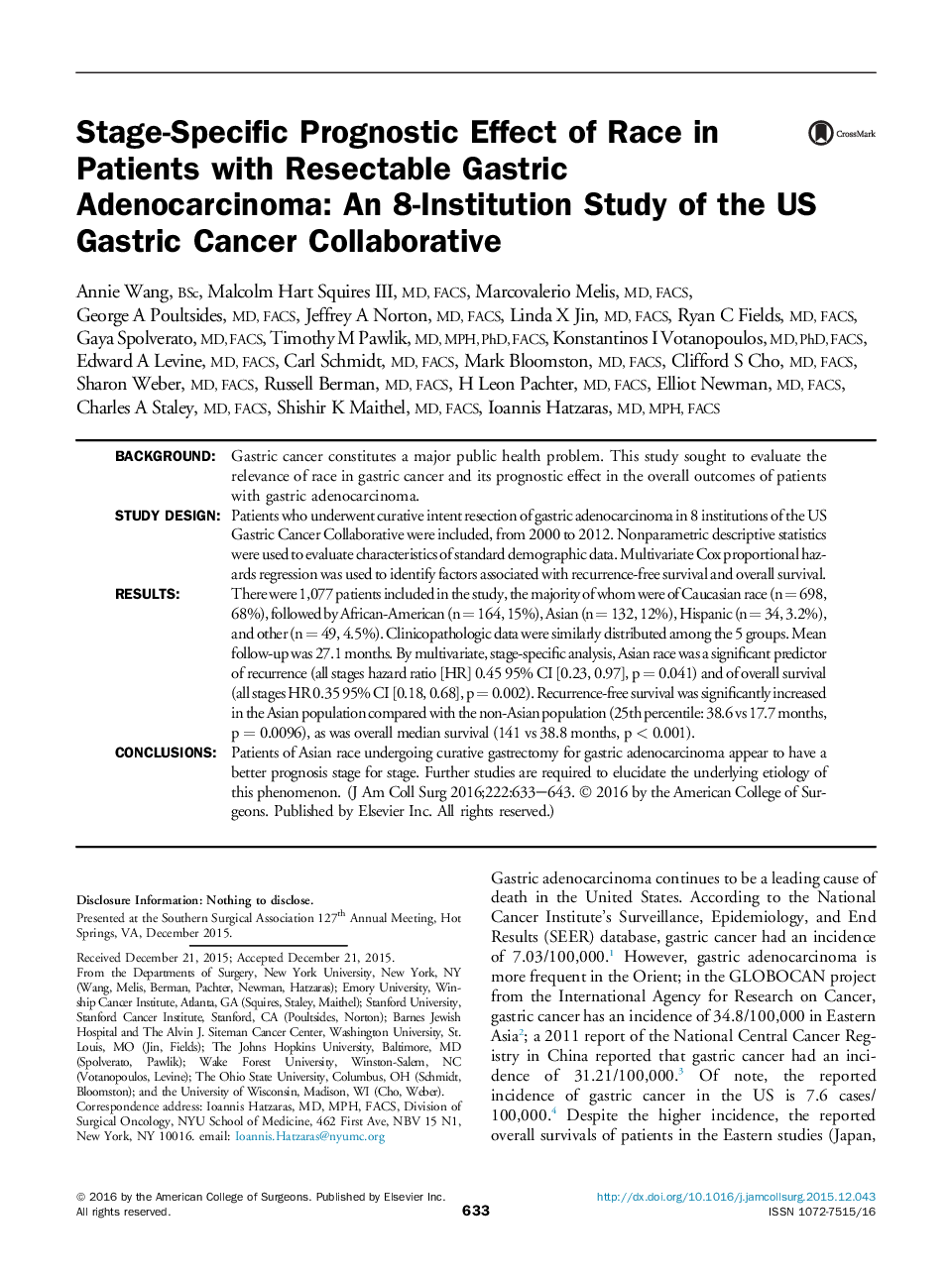| Article ID | Journal | Published Year | Pages | File Type |
|---|---|---|---|---|
| 4290767 | Journal of the American College of Surgeons | 2016 | 11 Pages |
BackgroundGastric cancer constitutes a major public health problem. This study sought to evaluate the relevance of race in gastric cancer and its prognostic effect in the overall outcomes of patients with gastric adenocarcinoma.Study DesignPatients who underwent curative intent resection of gastric adenocarcinoma in 8 institutions of the US Gastric Cancer Collaborative were included, from 2000 to 2012. Nonparametric descriptive statistics were used to evaluate characteristics of standard demographic data. Multivariate Cox proportional hazards regression was used to identify factors associated with recurrence-free survival and overall survival.ResultsThere were 1,077 patients included in the study, the majority of whom were of Caucasian race (n = 698, 68%), followed by African-American (n = 164, 15%), Asian (n = 132, 12%), Hispanic (n = 34, 3.2%), and other (n = 49, 4.5%). Clinicopathologic data were similarly distributed among the 5 groups. Mean follow-up was 27.1 months. By multivariate, stage-specific analysis, Asian race was a significant predictor of recurrence (all stages hazard ratio [HR] 0.45 95% CI [0.23, 0.97], p = 0.041) and of overall survival (all stages HR 0.35 95% CI [0.18, 0.68], p = 0.002). Recurrence-free survival was significantly increased in the Asian population compared with the non-Asian population (25th percentile: 38.6 vs 17.7 months, p = 0.0096), as was overall median survival (141 vs 38.8 months, p < 0.001).ConclusionsPatients of Asian race undergoing curative gastrectomy for gastric adenocarcinoma appear to have a better prognosis stage for stage. Further studies are required to elucidate the underlying etiology of this phenomenon.
